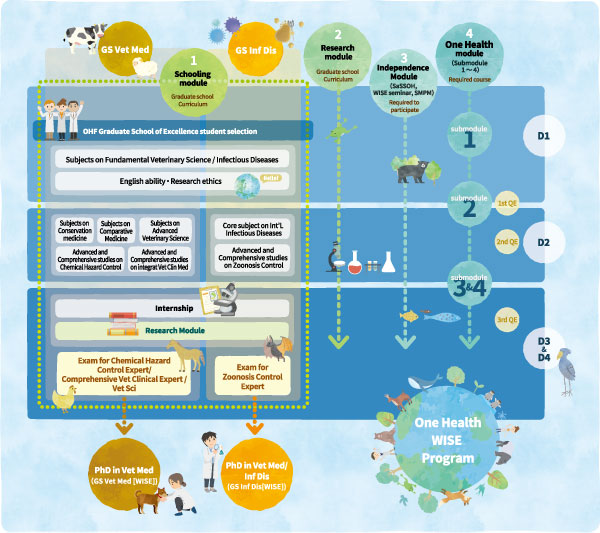- Home
- Eligibility, Curriculum
Program Objectives
The WISE Program for One Health Frontier Graduate School of Excellence aims to cultivate professionals (experts in knowledge and skills) who can design and implement solutions to One Health-related issues, aiming to protect the healthful living environments of humans and animals, and pass on sustainable and healthy living environments and ecosystems to the next generation.
Program Eligibility and Application Process
This program is a four-year doctoral degree program with a capacity of 20 students. Among the successful applicants of the Graduate School of Veterinary Medicine, Hokkaido University (capacity: 16 students) and the Graduate School of Infectious Diseases, Hokkaido University (capacity: 12 students), students who wish to participate in this program will be selected through a selection process consisting of an essay, a research plan, and an interview conducted immediately after admission.
See the Graduate School Entrance Examination and Program Selection Examination Details
Curriculum
This program consists of four modules: a graduate school curriculum aimed at obtaining a degree, and curriculum aimed at training professionals (experts in knowledge and skills) who can design and implement solutions to One Health-related issues.
Graduate School Curriculum
1) Schooling Module and 2) Research Module
- Modules for obtaining a degree
- Degrees awarded are PhD in Infectious Diseases and PhD in Veterinary Medicine
- By completing designated courses and passing certification exams, students can be certified as experts in zoonotic infectious disease control, chemical hazard control, comprehensive clinical practice, and veterinary science/ zoobiquity.
Academic English
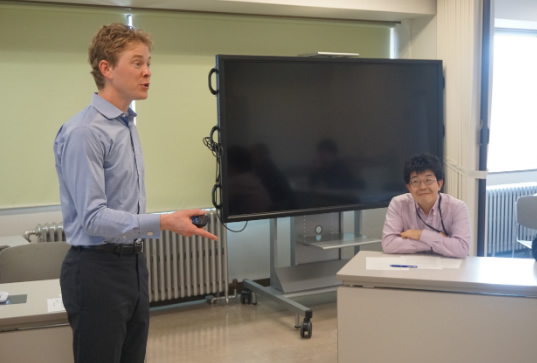
In addition to classes tailored to students' abilities and needs, individualized follow-up is provided.
Internship
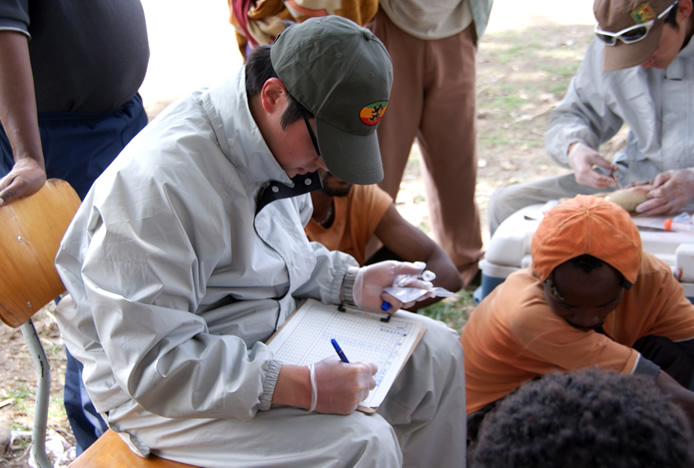
Developing a broad perspective not limited to work experience, but also by reconfirming the expertise required by society.
For the report meeting, please click here.
For the reports, please click here.
3) Independence Module (student-led program)
- Module for developing a sense of responsibility, planning and operational skills, and the ability to promote interdisciplinary research.
WISE/LP Seminar
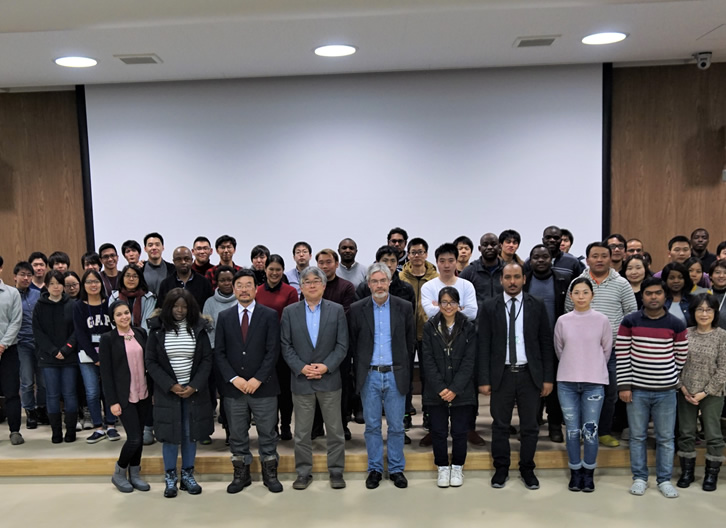
Seminar that students are responsible for everything from selecting lecturers to organizing and hosting the event.
See the past seminars, please click here.
Student Monthly Progress Meeting
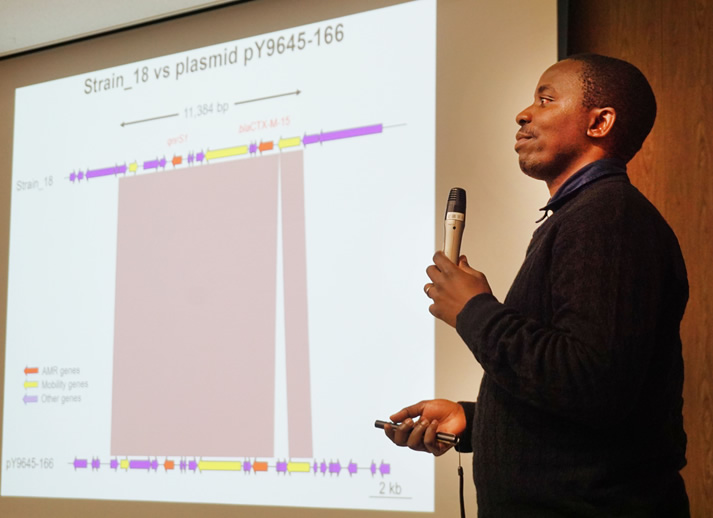
A seminar that students freely discuss their research.
You can see the Progress Meeting here.
SaSSOH
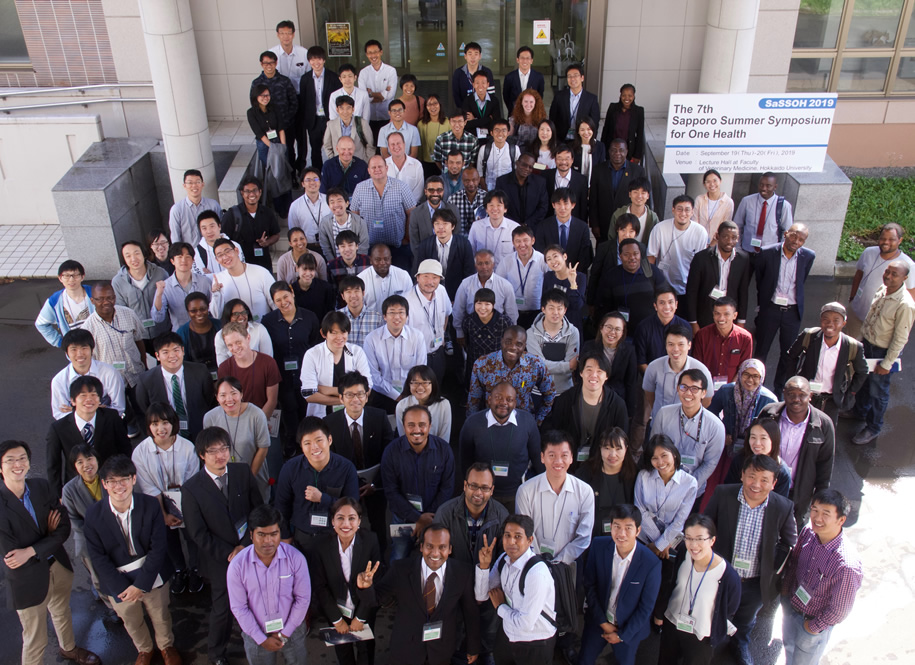
Interdisciplinary international symposium planned and hosted jointly by students and young faculty members.
SaSSOH website
4) One Health (OH) Module
- Module aimed at fostering understanding of One Health, a well-balanced international perspective, and collaboration skills.
- The OH module is offered as the "One Health Ally Course" to graduate students at Hokkaido University and affiliated universities, regardless of their academic background.
For the details of the One Health Ally Course, please click here
OH transferable skill training
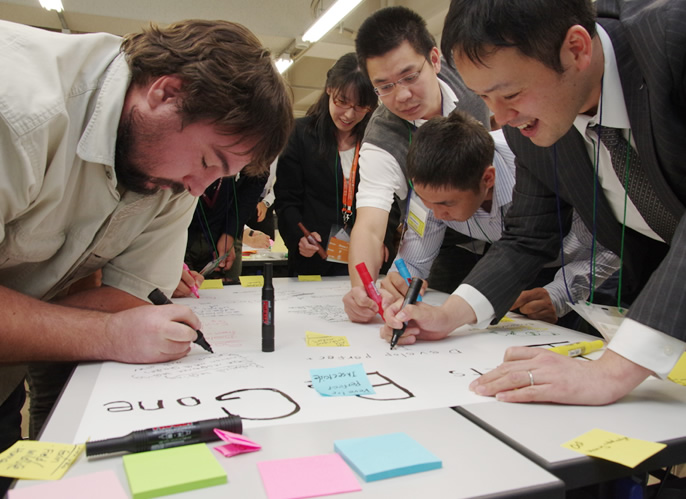
Refining generic skills such as explanatory and debating abilities through team-based problem-solving and strategy development.
OH collaborative training
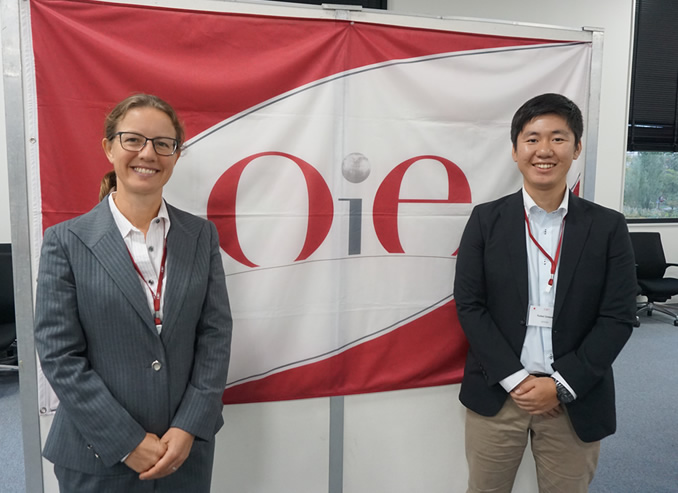
Enhancing collaborative skills through joint research projects and support for meetings of international governmental organizations.
OH on site training
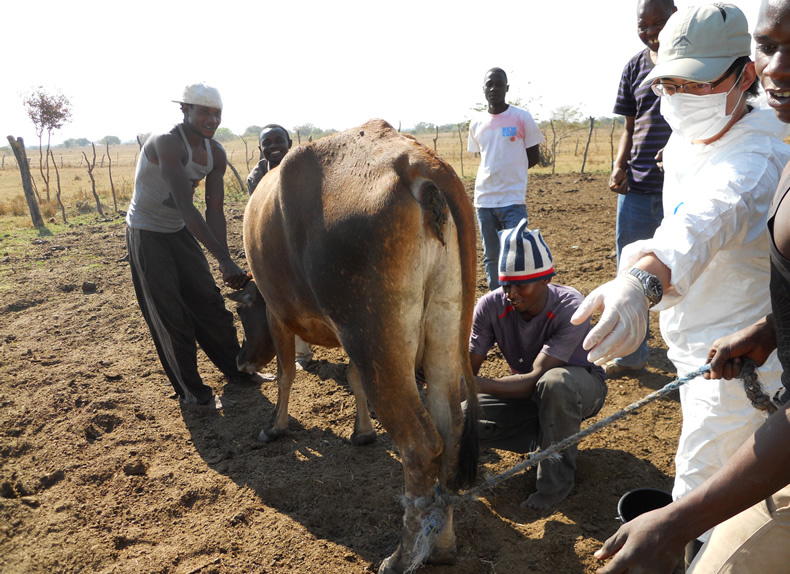
Experience the One Health Approach through practical research and surveys conducted overseas.

